
Anyone who has ever bought a car does so with the intention of keeping it in tip-top condition—giving it a thorough clean once a week, emptying out the rubbish the moment you get out of the car, and even forbidding entry to passengers foolish enough to wear muddy shoes. Of course, as time passes, our standards start to slip. Before we know it, we forget to look after our cars the way we're supposed to. With how much cars cost, however, you want to get the most bang for your buck until you've got enough money to upgrade to a new one. The best way to do this is through proper maintenance!
We're going to take you through some of our top maintenance tips that will help your car last longer and prevent minor problems from becoming major ones.
Why maintenance matters
Before we get into the nitty gritty of our maintenance tips, we first want to stress the importance of taking care of your car…
It saves you money
Proper maintenance not only helps your car last longer, it also saves you money in the long run. If you catch a problem early on, the amount you'll spend on repairs will pale in comparison to what you would have had to pay had you waited.
It keeps you safe
Whilst the financial benefits attached to maintaining your car are certainly appealing, the more important advantage, by far, is the upkeep of road safety. If you ignore car wear and tear, e.g., a faulty clutch pedal or worn out brakes, you could cause a serious accident.
Helps performance
If you're using your car on a regular basis, it will eventually start to wear down. You'll undoubtedly notice a dip in its performance the longer you use it for. If you maintain your car properly, however, it can last far longer.
Increases appeal value
Some people are wary of buying used cars, as they can often come with a host of problems. If you intend to sell your car further down the line, showing that you've taken care of your car will help increase your chances of selling.
And now, onto PassMeFast's top maintenance tips!
Keep it clean
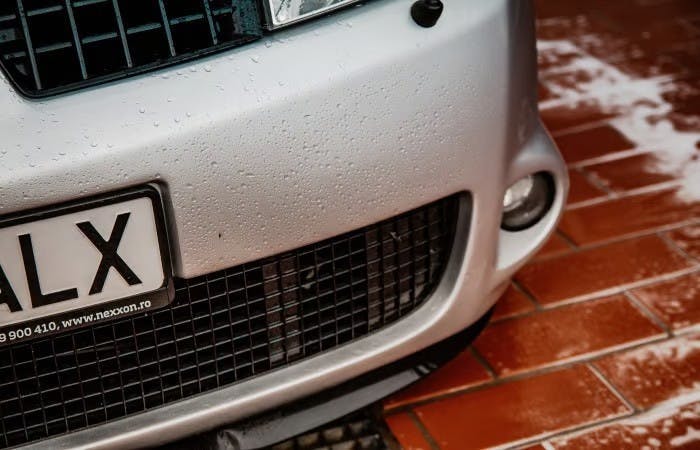
We're starting our list off with an obvious tip: keep your car clean. It may seem straightforward, but ask yourself: how often do you really clean your car? Sure, when you first buy a car, you promise yourself that you'll keep it looking pristine. As time flies by, though, you can go months without so much as a vacuum. The horror!
The problem here is that the longer you wait to clean your car, the more dirt and grit starts to build up. And we're not just talking about the exterior: if you're not careful, the moving parts of your car can start to corrode and wear down. It's easy to see, then, how the minor issue of a dirty car can easily spiral into a major problem in no time. You could end up having to pay hundreds of pounds for repairs!
So, instead of avoiding the problem, face it head on. Make a point of cleaning your car every week or so. Staying on top of the little things will prevent you from having to deep clean quite so often. If you're struggling with where to start, have a gander at our top tips to keep your car clean!
Start thinking about how you drive
If you've been driving around like you're a character from the Fast and Furious franchise, you might want to give your driving style a rethink. The less smooth your driving, the faster your car will start to wear down.
This is why driving with care is so important. This doesn't mean going at a snail's pace, but instead showing an awareness of how you're driving. In the habit of accelerating and braking sharply and suddenly, for example? You'll need to cut that out! If you rush, you run the risk of stalling your car and damaging its moving parts. Revving too quickly can also wear down the engine.
Not sure changing the way you drive is worth it? Well, it could help you reduce your insurance premiums! If you opt for a black box (telematics) insurance policy, you'll get reductions in your premiums if the insurer determines you're a safe driver. So, you can make your car last longer and save money on your insurance. What's not to like?
Be gentle with your clutch

As we've said, you need to be wary of how heavy-footed you are at the wheel. If you're driving a manual car, however, you should pay even more attention to your clutch pedal. It's one the components that tends to wear down the fastest, especially if you use it more than you should. (It can also be pretty expensive to replace!)
Though it can be tempting to keep your engine on and your foot on the clutch pedal in stop-start traffic, you should instead opt to switch your engine off. If you're not moving, you're using up fuel for no reason and wearing down your clutch pedal.
Try not to carry too much
With most of us using our cars every day, it's only natural that we end up hoarding dozens of items in our boots or backseats over the years. You never know when you might need a spare pair of shoes, a suitcase or garden tools, after all. Believe it or not, however, hoarding isn't just detrimental to the feng shui of your car. In fact, it can also force your car to over-exert itself.
Put simply, the heavier your car is, the more effort your engine has to put in to get the car going. If you're doing this on a regular basis, your car is far more likely to wear down faster. So, you need to take the time to carefully consider what you actually need to keep in your car. If you're stuck, read up on our guide to essential items to keep in your car.
Pay attention to your warning lights
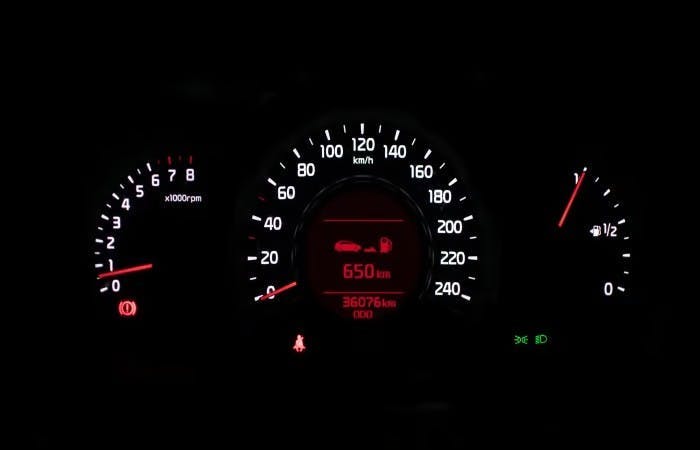
Tempted to put some tape over that annoying warning light on your dashboard? Don't. Those little symbols actually indicate that your car has issues—and often, ones that need sorting out ASAP. If you don't get them sorted, it could have severe consequences.
If the idea of causing an accident isn't enough to scare you straight, you should also think about the financial side of things. If you've got an issue with your brake system, for example, and you ignore it, what could have been a minor problem will turn into a major one—leading to you having to pay more for repairs. So, get up to speed with what your dashboard warning lights mean and keep your eyes peeled.
Keep an eye on fluid levels
If you want to keep your car moving the way it should, you need to stay on top of its fluid levels—replacing and topping them up when need be. If you fail to do so, you could end up damaging your engine. So, carve out some time at least once every fortnight or so to actually look under the hood of your car. Then, check the levels of your:
- Engine oil
- Hydraulic brake fluid
- Engine coolant
With all of the above, the levels should be between the minimum and maximum markers. If they're not, top them up carefully. This should be a relatively familiar process to you, as it's what you should have been shown to do briefly when practising for the show me, tell me questions. If you're not sure what you're doing, have a family member or friend give you a rundown.
Give your mirrors and lights a check
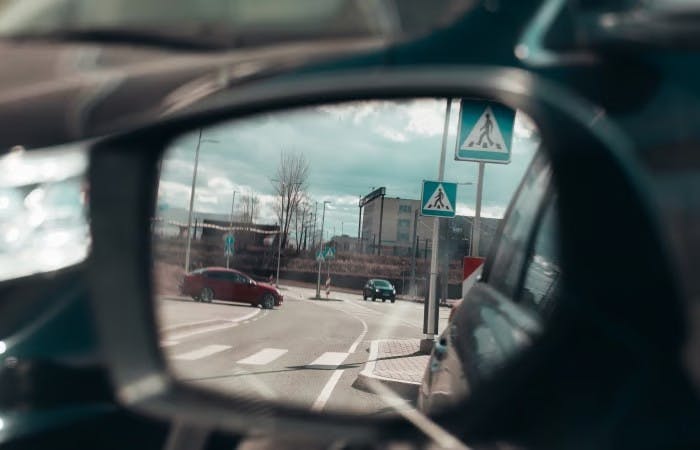
In order to stay safe on the roads, you need to make sure you can see everything ahead of you, beside you and behind you. That's why car mirrors are so important. With that in mind, we'd recommend getting into the habit of checking your exterior mirrors at least once a week—give them a good clean if they start to look a bit manky. If they're damaged at all, take your car to your local garage and get them fixed ASAP.
Just as you should keep an eye on your mirrors, so too should you look out for your lights. If you're driving at night and that dim headlight you've been ignoring for the last month finally goes out, you'll be completely stuck. Not only could it lead you getting pulled over by the police, it could lead to a major accident. So, every now and then, turn on your lights and walk around your vehicle to give them a check. (Make sure you're in a safe place and that there aren't any nearby hazards when you do.)
Treat your tyres with care
If there's one part of your car that deserves extra attention, it's your tyres. Without them, you won't get anywhere. They undergo a lot of wear on a regular basis, so if you neglect them, you could end up with a flat tyre or worse.
For starters, you need to keep a close eye on their air pressure. If they're not inflated properly, you could end up consuming too much fuel. It could also lead to difficulties in steering and manoeuvring. You'll find your car's recommended air pressure in your vehicle handbook. We'd advise you check your tyre pressure every fortnight or so.
Next, you need to check the tread depth of your tyres. It should be 1.6mm across the central three-quarters of the tyre. As you do this, check for any cuts or bulges. If you find anything, take your car into your local garage and have them replace the tyre if need be. Trust us, you'd rather face the cost of replacing a tyre than deal with your car breaking down on the motorway.
If you live in an area that suffers drastic changes in road and weather conditions during seasonal transitions, you might even want to consider switching between summer and winter tyres.
Read up on your vehicle's handbook

Remember the vehicle handbook you received when you first bought your car? No? You probably tossed it to one side—not even bothering to glance through it. We won't judge you for it; it's certainly not the most thrilling read out there. What it is good for, however, is helping you figure out the intricacies of your vehicle and how to maintain it properly.
If you leaf through it, you'll find all sorts of information ranging from how often you should take your car in for service checks to its recommended tyre pressure. Essentially, if you've got a question about your vehicle, it's likely your handbook will contain the answer. So, take the time to read it. Trust us, it will pay off!
Don't ignore anything out of the ordinary
Once you've owned a car for a few months or more, you'll naturally get used to all of its sounds and overall behaviour. It's important you pay attention to this, because if anything irregular starts to crop up, it could be evidence of a bigger problem.
Let's say your vehicle has started making an odd shrieking noise every time you move above second gear. Or, your clutch pedal has started feeling a bit off when you depress it. Ongoing problems such as these mean you need to take your vehicle in to get looked at.
Pay attention to your fuel economy
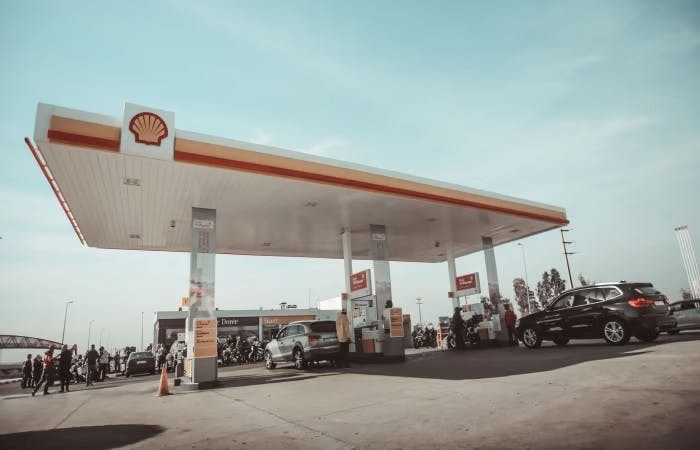
The amount of fuel your car consumes can tell you a lot about your vehicle's overall health and performance. If you find yourself having to fill up at the petrol station more often, it's a common sign that something's amiss with your car. Fortunately, we've already given you a few pointers to sort this out—sorting out the weight of your car, adopting smoother driving habits and ensuring your tyre pressure is at the right level.
If you've tried all of the above, yet you're still consuming a lot of fuel, consider following our top 10 ways to save fuel when driving. If that still doesn't do the trick, we'd recommend having an expert check out your car—there could be a bigger problem going on underneath the hood.
Store it properly
Now, this point only really applies to drivers who have their own garage. If you've been using your garage as a storage unit, and leaving your vehicle on the road to brave the elements, you should reconsider your stance. Not only will parking your car in a garage keep it dry and clean, it could also reduce your insurance premiums. It's far more risky to park your car on the pavement than it is to do so in your own garage.
Take your car in for service checks
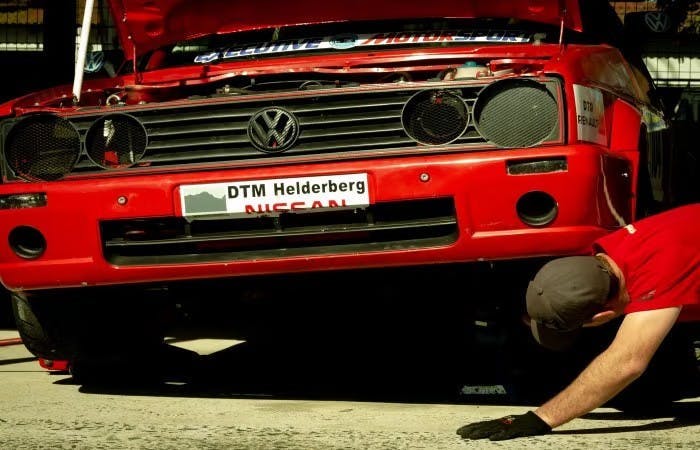
Finally, we're on to our last maintenance tip. It's certainly one of the easiest to follow! Every driver should take their vehicle in for regular service checks. Manufacturers recommend drivers do this every 12,000 miles, or every 12 months, depending on which comes first. You can also check your vehicle handbook to double check what your service check schedule should be. If you've got a relatively modern car, you might even have a warning light that will tell you when a check is required.
During a service check, an expert will carefully look at all of the main components of your car. They'll note down any issues they find and then proceed to sort them out. How thorough they are will depend on whether it's an interim or full service check.
Service checks are extremely important for maintaining your car and helping it last that much longer. If you avoid taking your car in for one simply because you don't want to spend the money, you should bear in mind that these checks help you discover minor problems before they become major ones—saving you serious money in the long run.
As tempting as it can be to take care of a problem yourself, you should avoid doing anything if you're not actually familiar with the process. A repair that could have cost next to nothing could end up skyrocketing if you try something yourself and end up making it worse.
Trust us, it's always better to leave it to the professionals!
Subscribe for driving advice, offers & more
We'd love to let you know about our courses, news and offers via email. You may unsubscribe at any time.
Star Genie Limited trading as PassMeFast. Company number 10093359
Copyright © 2024 owned by Star Genie Limited
PassMeFast, Blue Tower, MediaCityUK, Salford, M50 2ST

